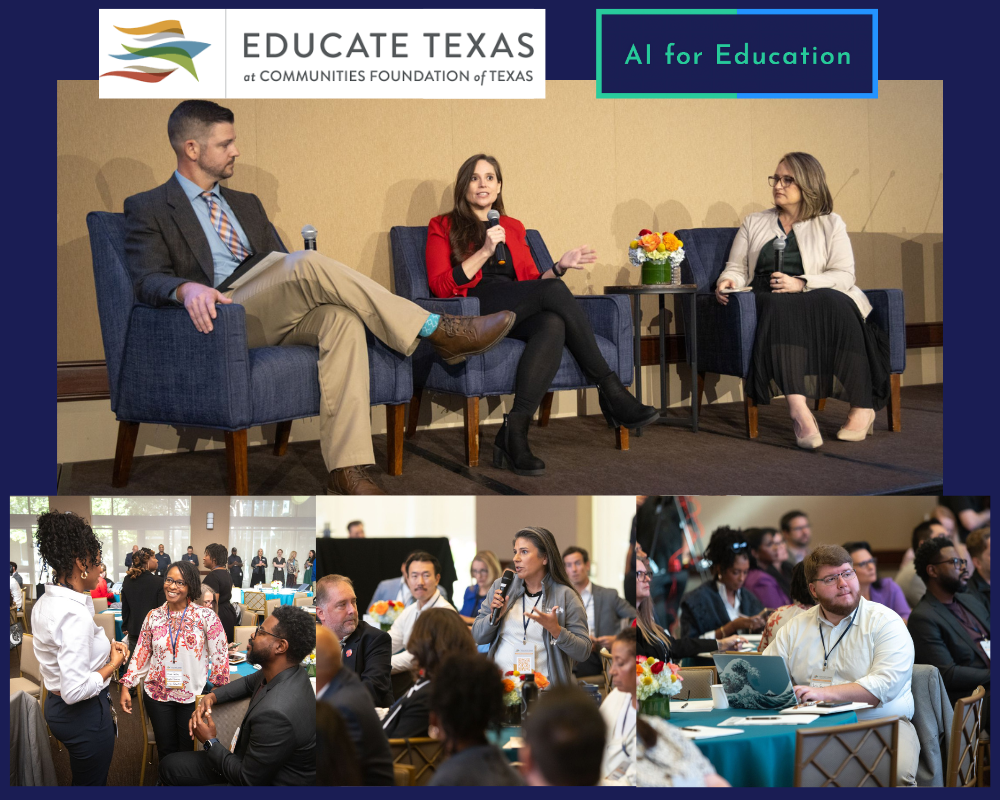Educate Texas: AI & Education
Last week, our CEO and co-founder of AI for Education joined a panel on AI literacy, facilitating breakout sessions with education leaders for Educate Texas, and working alongside them as they develop their broader strategy around AI and education. The conversations were rich and surfaced a number of themes worth sharing:
- While research shows that AI literacy tops the list of rising skills in job postings, many universities are still discouraging the use of AI tools—preventing students from developing this critically employable skill.
- What took the internet decades to transform in terms of how we work, learn, and communicate will take AI only 5-8 years—a speed of change faster than any previous technological shift.
- The most important skills of the future won't be technical AI knowledge—they'll be durable skills like critical thinking, flexibility, and agility.
- The most important skills of the future won't be technical AI knowledge—they'll be durable skills like critical thinking, flexibility, and agility.
- True AI fluency means knowing how to iterate, refine, and converse with the model. First outputs are often the most generic, most biased, and least personalized.
- Cognitive offloading, bias, data privacy, and deepfakes pose serious threats, but blocking access instead of teaching responsible use could deny young people the skills they need most.
These conversations sparked important questions from attendees that reflect the complexity of integrating AI into education:
- How do we address AI’s environmental impact?
- How can we address the unintended consequences of AI?
- How do we ensure AI equity going forward?
- How do we effectively implement AI guidelines and policies within our states and schools?
These questions don't have easy answers—and that's exactly why these conversations are needed.
Thank you to Educate Texas and the panelists. Discussions like these are essential to shaping how we build AI literacy in classrooms.

